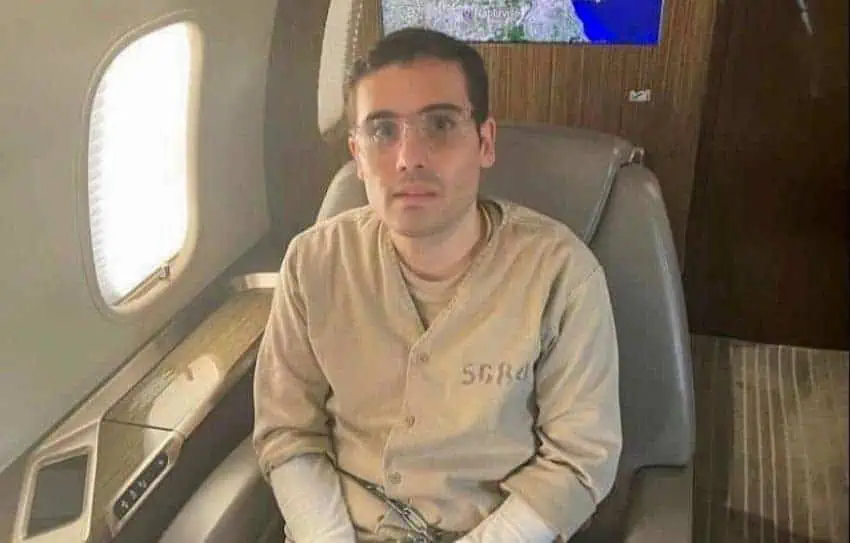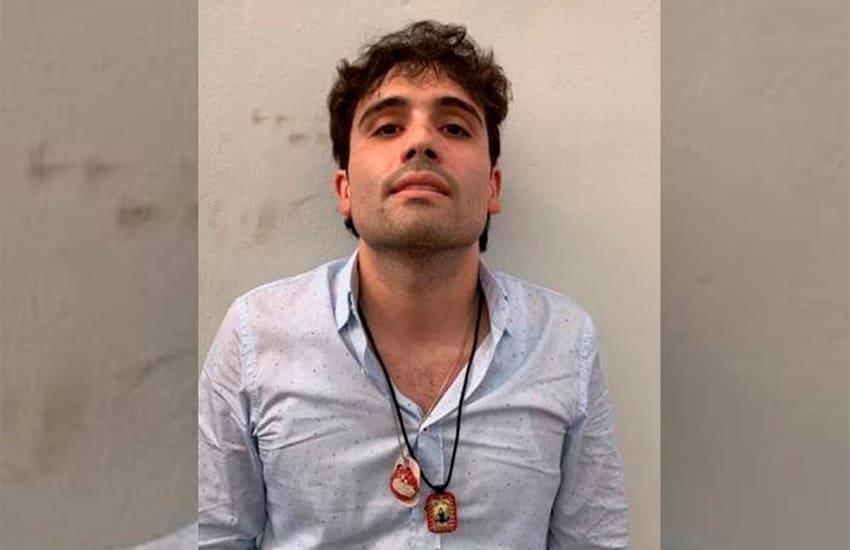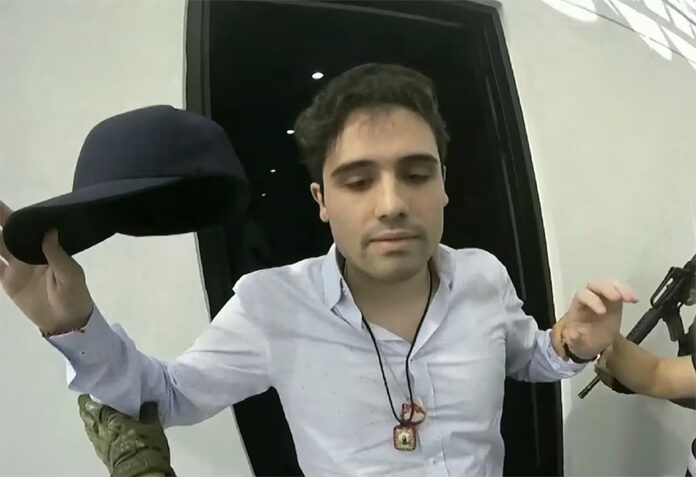Ovidio Guzmán López, son of the notorious Sinaloa Cartel boss Joaquín “El Chapo” Guzmán Loera, pleaded guilty to drug trafficking charges in a U.S. federal court in Chicago on Friday.
Facing a possible life sentence, Ovidio pleaded guilty to two counts of drug distribution and two counts of participation in a continuing criminal enterprise at the Dirksen federal courthouse in downtown Chicago, a city where cartel members made key inroads.

His next court appearance in front of U.S. District Judge Sharon Coleman will be in six months.
The guilty plea comes as violence unleashed back home by warring factions of the Sinaloa Cartel continues to terrorize residents of the northwestern state of Sinaloa.
In late June, Mexican authorities found 20 bodies — including five that were decapitated — in the state capital of Culiacán. In early May, an outburst of violence in the bloody turf war between two cartel factions, Los Chapitos and Los Mayos, forced authorities to shut down highways in and around Culiacán.
The infighting began a few months after the arrest of two rival drug kingpins, including Ovidio’s brother, Joaquín Guzmán López, who was accused by the other — Ismael Zambada — of kidnapping him and turning him over to U.S. authorities.
Zambada is being held in a U.S. federal prison in Brooklyn, while Guzmán López is in Chicago where he is expected to plead guilty during a hearing in September.
What does Ovidio’s plea mean?
In indictments filed in New York and Chicago, prosecutors allege Ovidio and his brothers — aka Los Chapitos”— are accused of reviving the Sinaloa Cartel after their father’s arrest in 2016 by trafficking in fentanyl, sending the deadly opioid to the U.S.
Ovidio, 35, was arrested in Culiacán in January 2023 and extradited from Mexico to the U.S. in September of that same year.
As part of his plea agreement, Ovidio admitted to overseeing the production and smuggling of large quantities of cocaine, heroin, methamphetamine, marijuana and fentanyl into the United States. The actions fueled a crisis that has led to tens of thousands of overdose deaths annually.

Ovidio also pleaded guilty to money laundering and firearms charges. Terms of the deal, including sentencing recommendations or cooperation agreements, were not disclosed, CNN reported.
Before Friday’s court hearing, Mexican President Claudia Sheinbaum was critical of U.S. dealings with Ovidio, accusing the neighboring country of a “lack of coherence.”
“The U.S. declared Mexican cartels terrorist organizations in January and yet they continue to negotiate with their representatives,” she said.
Ahead of the guilty plea, there had been considerable speculation that Ovidio would become a cooperating witness.
After an Oct. 21, 2024, hearing, El País reported that Ovidio and his brother Joaquín were negotiating plea deals and would be represented by the same attorney, Jeffrey Lichtman.
In mid-May, Mexican authorities confirmed that 17 members of the extended Guzmán family had crossed into the U.S. as part of a deal between Ovidio and U.S. prosecutors.
Attorney Rob Heroy told BBC Mundo that Ovidio was likely turning state’s evidence. “There would be no incentive for him to plead guilty unless he was cooperating,” he said.
Lichtman declined to comment on Friday, telling CNN that he would wait until Ovidio was sentenced before discussing whether the agreement was a good deal.
Parker Asmann, a Sinaloa Cartel expert with organized crime research group InSight Crime, said a plea deal could help pave the way to further prosecution of the Chapitos and the Sinaloa Cartel.
“Securing his cooperation could mean [U.S. authorities] could undermine the drug trade and attack corruption in Mexico they want to target,” Asmann told USA Today.
With reports from El Economista, El País, USA Today, CNN and Reuters
